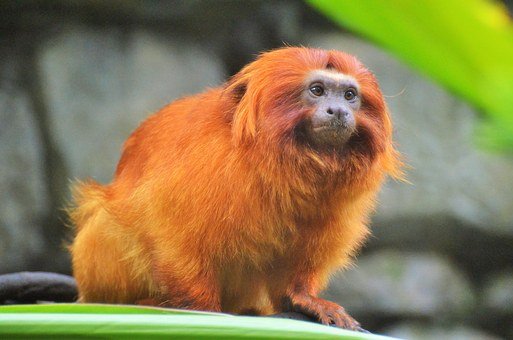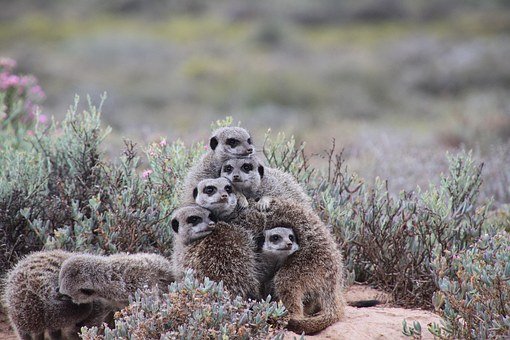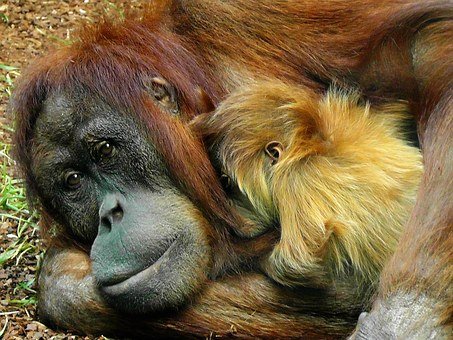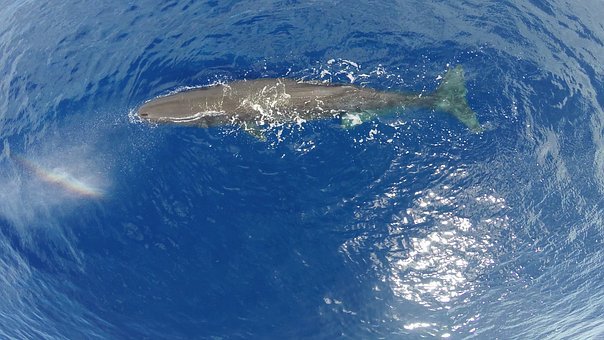LIKE HUMANS: A Look Into How Animals Learn
As social beings, it’s highly important that we exhibit some social norms. Norms that are perceived acceptable by majority of the society we find ourselves in and are necessary for us to survive as humans.
While a number of these norms are inbuilt, majority are learned in two ways. Some are directly taught by our parents and immediate family while others are learned by copying what others do.
[On a side note, many humans especially those who are introverted or have autism or Asperger’s syndrome find it difficult to exhibit these social norms. I’m an introvert and sometimes I find it hard to relate to some social/emotional situations. However, through experience, I have learned to exhibit facial reactions that are socially acceptable even when I don’t feel them]
Because learning these social norms and/or survival skills requires higher intelligence – one that humans are blessed with, it becomes amazing when we find examples of this complex system among animals.
Do Animals engage in Pedagogy?
THE MASTER TEACHERS
As stated earlier, the most important method of learning these social norms/survival skills is being taught by our parents and immediate elder ones.
Researchers find this practice common in quite a number of animals especially primates. For example, Cambridge researchers discovered that adult meerkats (Squirrel-sized mongooses) are well known for this. The adults in order to teach their inexperienced young ones how to hunt first bring dead preys for them to try their skills on. This then graduates to injured preys until the young one is skilled enough to hunt live preys.
Another amazing form of tutoring is that of the Wild Golden Lion Tamarins. These endangered animals have been observed to hide preys (especially maimed ones) in a location. Young ones are directed to where these preys are in a bid to teach them how to hunt. This location tutoring method is also common among some ant species in Europe. Adults have been found to direct their young ones to a food source.
Some animals even teach their young ones certain sounds that will be helpful in communicating with others while some like chimpanzees have been found to have distinct social traditions they teach their young ones.
The orangutan mom takes teaching to a high level. It takes care of its young for 8 years – the longest in the animal kingdom.
Throughout these 8 years, the mom is solely dedicated to teaching its baby essential life skills like building nests and finding good places to eat. No wonder the baby forms a strong social bond with its mom.
An essential lesson we can learn from all these is that like humans, animals thrive better with when they are mentored.
Their success “skyrockets” with adult help, Lisa Rapaport says, which is “circumstantial evidence” of teaching.
Do you have a mentor?
THE INFLUENCERS
Another major way we, human beings, learn social norms and skills is by imitating what we see others do. This social learning process has also been found in a number of animals.
In observed cases where some young animals display some common social characteristics, researchers have found no evidence of direct teaching.
Cheryl Aguiar gives several examples that have been found in dogs.
One dog is taught to use a pet door by giving encouragement and treats to go through the door. A new dog is introduced to the environment and learns to use the dog door after watching the experienced dog.
Birds especially pigeons have also been found to learn some sounds by imitating other birds.
Interestingly, young chimpanzees have not only been found to imitate how their adults manipulate tools but also capable of imitating how human researchers swing tools.
Also, a number of monkeys not only practice gaze following like humans, they also form fear responses by observing how other monkeys react to another animal e.g a sheep or a lion.
Shane Gero of the Dominica Sperm Whale Project observes that sperm whales learn their distinct language by imitating their mothers or other adult whales in their social clique.
Conclusion
Several decades ago, scientists didn’t have any evidence that animals engage in pedagogy. They believed such capability was reserved solely for humans and maybe some intelligent animals like the gorillas and other primates. Other animals, they assumed, only had inbuilt skills they automatically have from birth.
However, when new observational tools and methods were released, researchers discovered that a vast of animals learn and transfer their social skills from generation to generation.
It’s been over a month I wrote a post save for SteemMag. I write every now and then on topics – (AI, Economics, Psychology and All Things Tech) - that pique my curiosity
.
Lastly, I will leave you with a reminder of an essential social skill – grit.
Below is a cute video of a Chihuahua sticking up for some kittens.
Sources:
https://www.nwf.org/News-and-Magazines/National-Wildlife/Animals/Archives/2015/Animal-Teaching.aspx
http://www.bbc.com/earth/story/20150723-10-astonishing-animal-parents
http://www.cam.ac.uk/research/news/wild-meerkats-school-their-young
http://www.sciencedirect.com/science/article/pii/S0003347207004812
http://animals.nationalgeographic.com/animals/mammals/meerkat/
http://link.springer.com/article/10.1023%2FA:1019650032735#page-1
http://news.nationalgeographic.com/2016/05/160507-animals-teaching-parents-science-meerkats/
http://www.bbc.com/earth/story/20150723-10-astonishing-animal-parents
https://iaabc.org/dog/social-learning-theory-and-animals-observational-imitation-learning
https://en.wikipedia.org/wiki/Social_learning_in_animals#Imitation_and_emulation
https://www.ncbi.nlm.nih.gov/pmc/articles/PMC3982061/
http://news.nationalgeographic.com/2016/05/160507-animals-teaching-parents-science-meerkats/
pixabay.com





This is a fantastic post @infovore, thank you for taking the time to put together such a excellentely sourced, well organized, and interesting presentation for us all! We are truly coming to realize just how intelligent other animals are, and it will be interesting to see as research progresses, just how much they are actually capable of understanding.
As a bonus, and in addition to resteeming for exposure. We are awarding you a small 5 Steem Power deposit as a thank you for creating quality STEM related postings on Steemit. We hope you will continue to educate us all!
https://steemit.chat/channel/steemSTEM
Thanks fro dropping by @steemSTEM and for everything you do.. Its exciting to see you guys actively trying to build the science comunity of steemit
Yeah, humans like to be arrogant and superior towards nonhuman animals, thinking we can speciously pick some criteria they don't have, that we do have, and use that to justify how we treat them. It's pathetic. Speciesism is a new realization to encompass a larger global awareness.
You're right! We've so much little knowledge of what goes around us, yet, we've got so much mental arrogance. Thanks for dropping by. Just googled what speciesism. Learned another new thing today.
Very good article, thanks a bunch for the information... As the years went by, I have been more and more interested in the social structures of bonobo's another very close "cousin" of ours. Thanks for the info and the sharing itself. Namaste :)
Thanks so much @eric-boucher fro dropping by.. Truly, we have so much to learn about animals having higher intelligence
In deed, we have so much to learn from all animals, vegetal life, as well as the mineral and other realms of frequencies we find ourselves sharing life with. Namaste :)
Fascinating stuff. The more we observe and study animals, the more it seems they do things that we thought only humans do. Not so different.
Thanks Tom! No matter exhausting we, humans think we've dealt with a topic or an issue. Something new always pops up after a while... Makes me wonder how our predecessors will marvel at things they thought were never possible during their time.
Awesome post. I loved it.
Do visit my blog and share your valuable feedback on my posts aswell :)
@perfectionist
Thanks for dropping by @perfectionist
nice
Interesting article @infovore! You have inspired some thoughts in me:
Human social norms teach us not only how to survive, but to destroy - actually, I would argue that modern norms teach more destruction than survival. The majority greatly favors consumerism over self-sufficiency, for example.
Are we, with our "superior intelligence", the only creatures that learn and habitually engage in customs that destroy our environment?
You're completely right @sarmiller. We feel we can do anything to nature and its other inhabitants cos we're superior beings.. We mostly end up putting ourselves on a disadvantage.
Thanks for dropping by. Really appreciate
Great article.